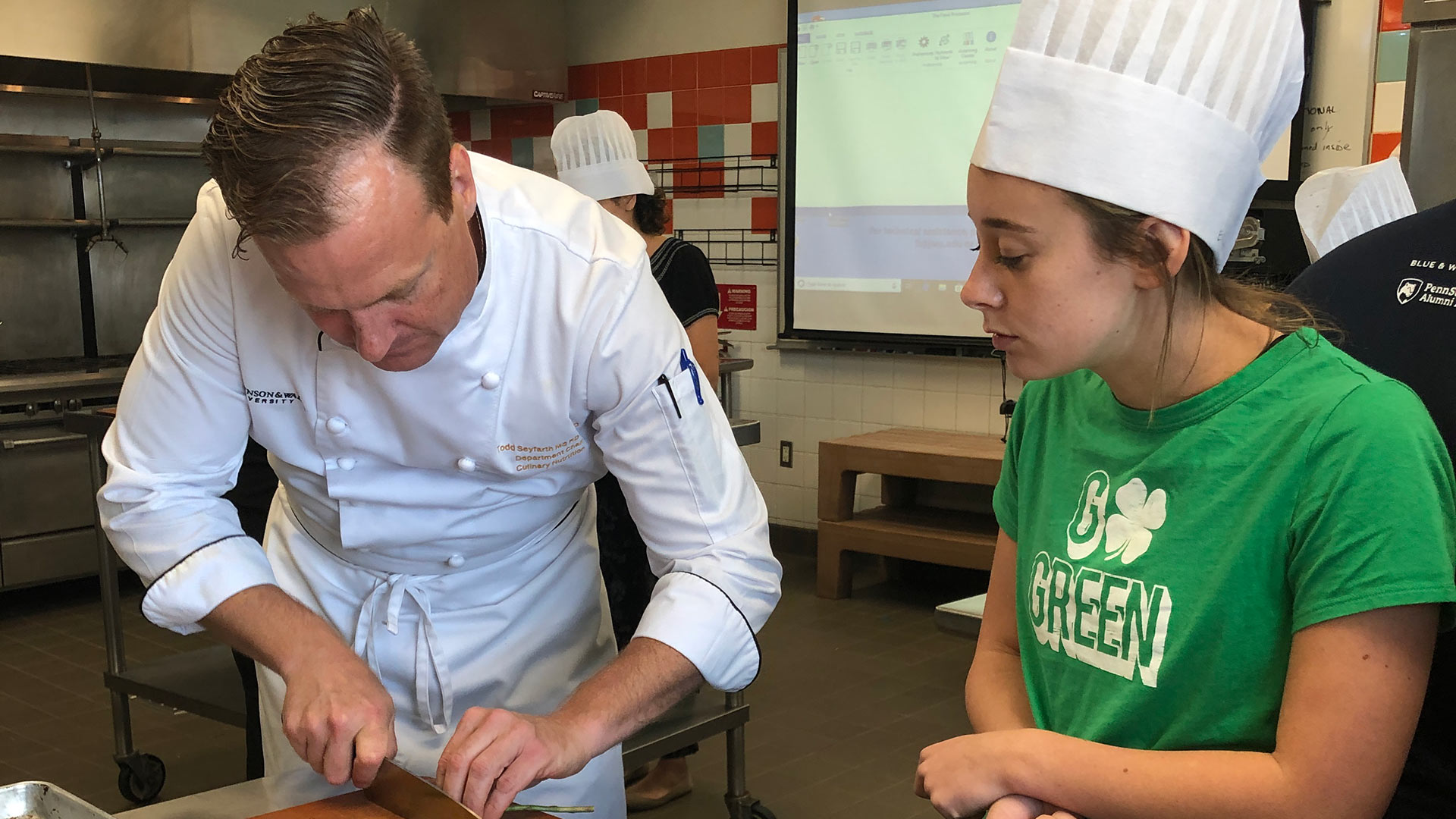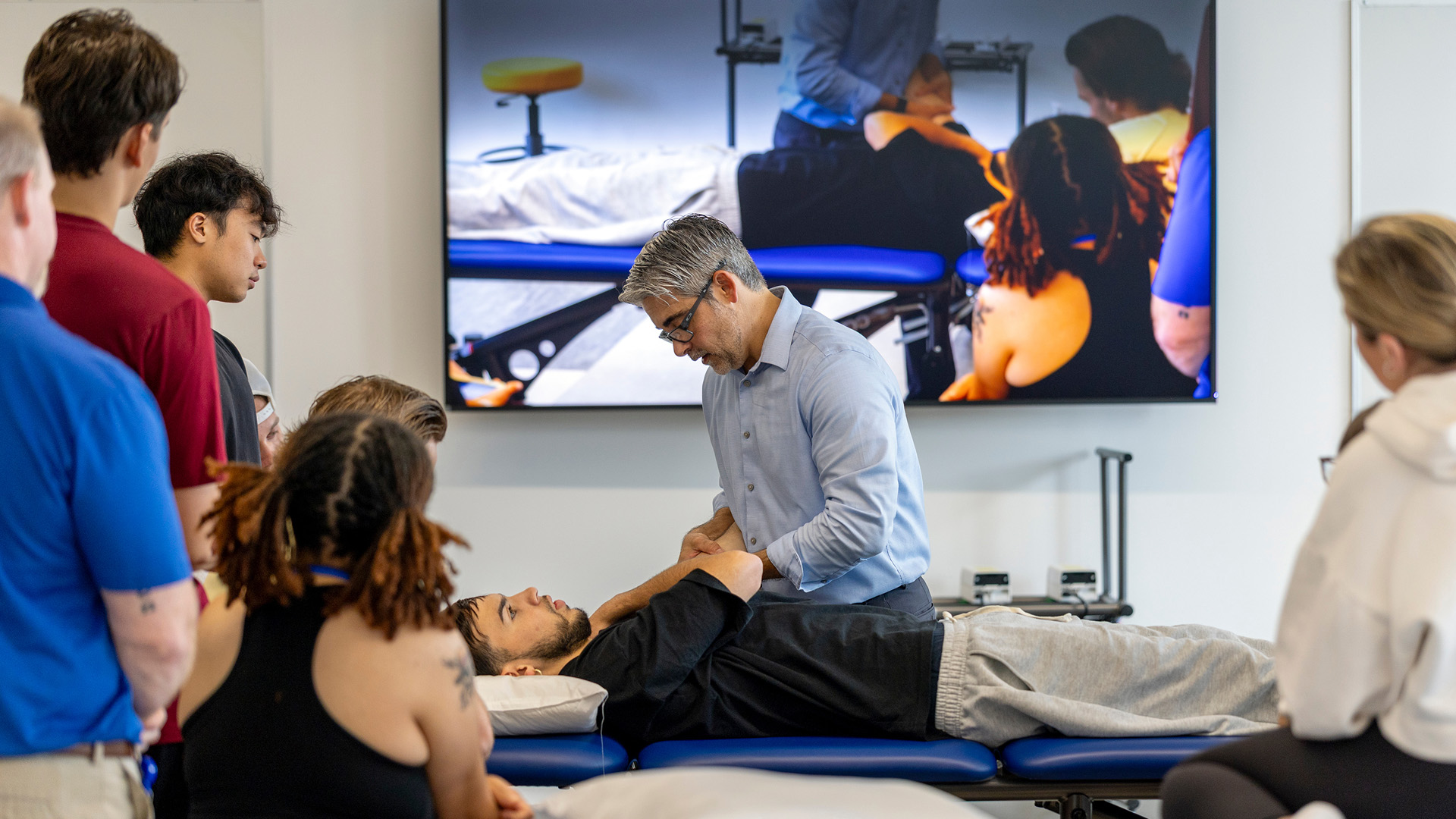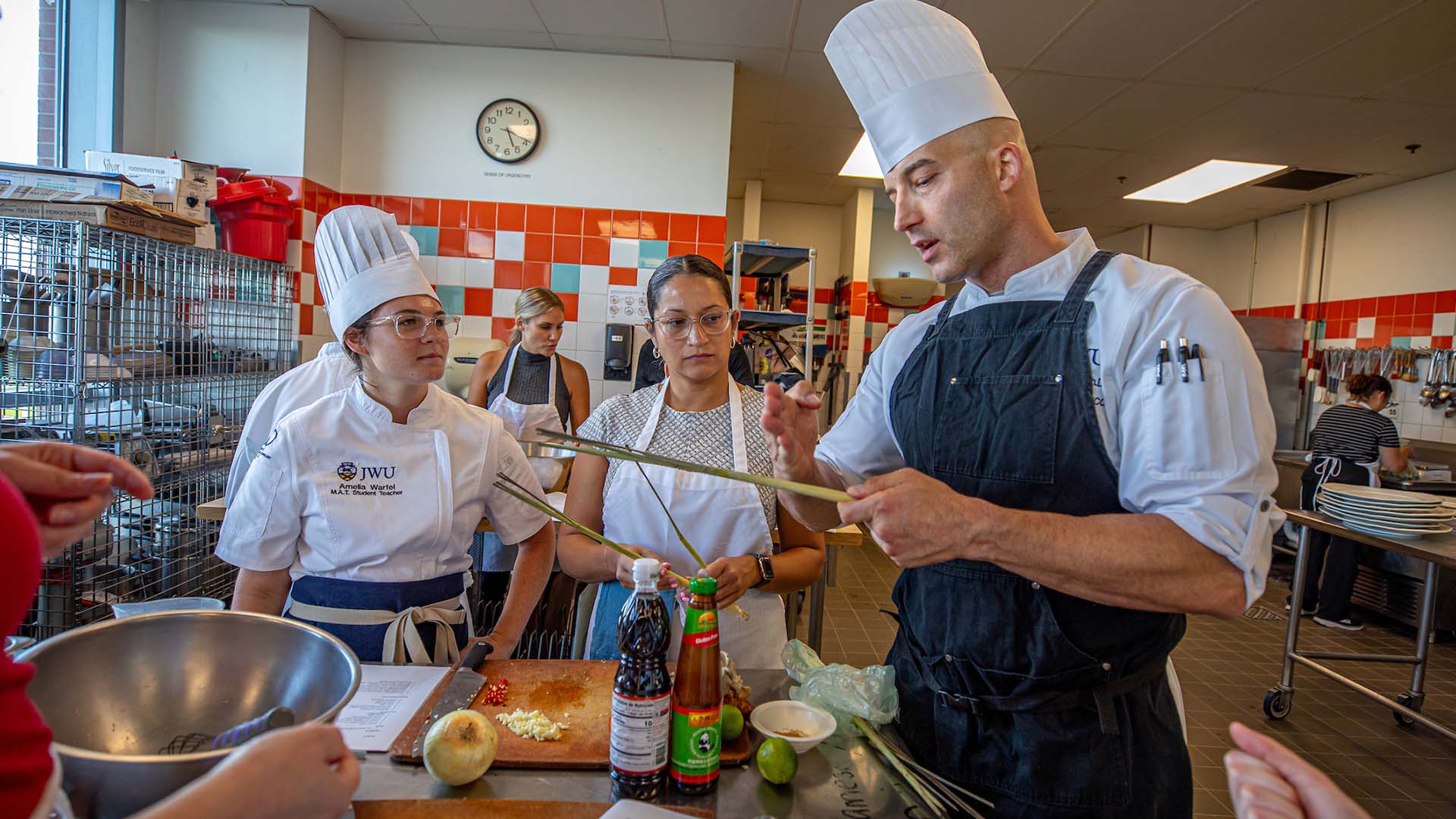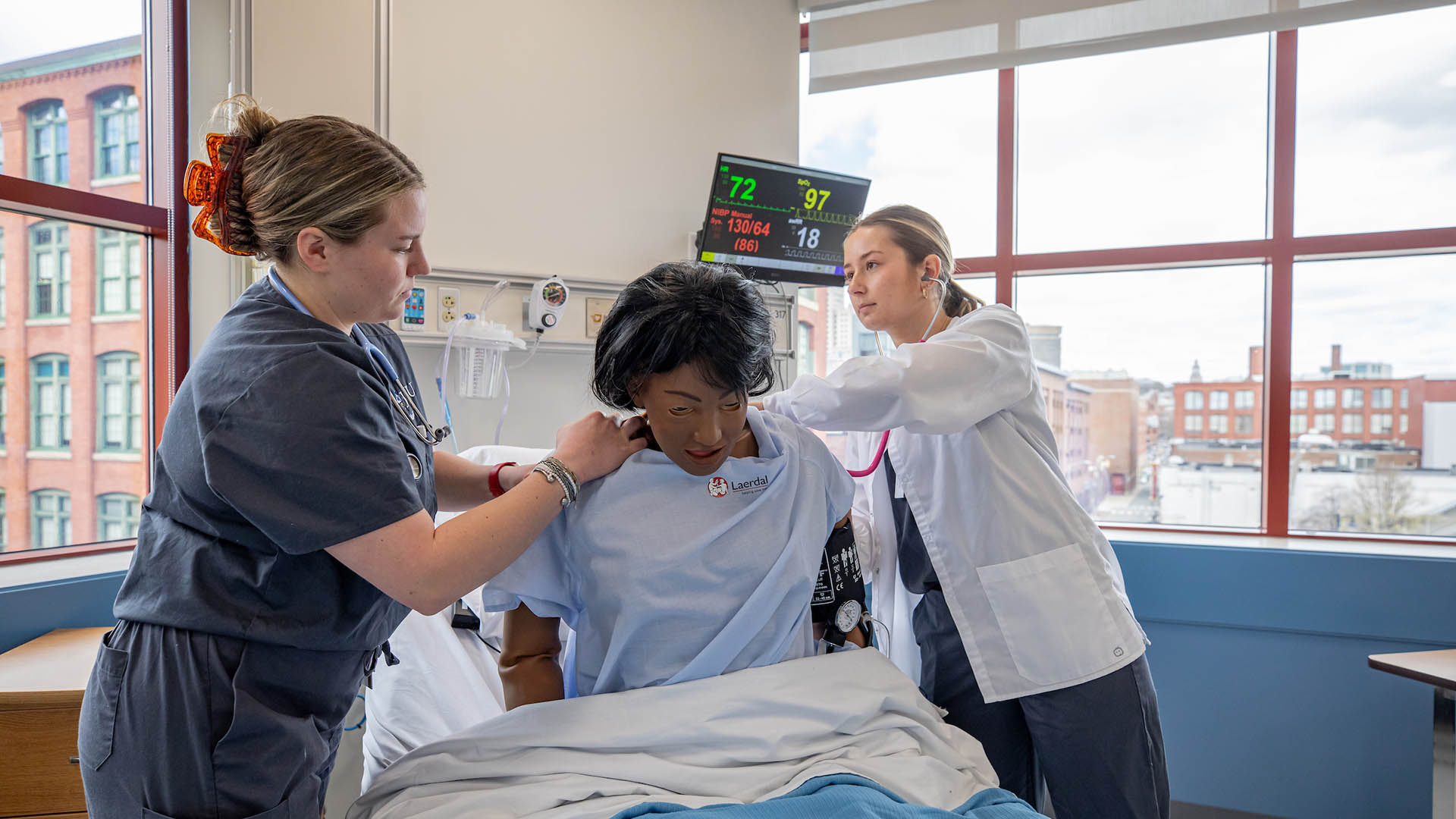The JWU Advantage: Dietetics & Applied Nutrition
Associate Professor Kara Cucinotta, MS, RDN, LDN, CNSC, '06 — registered dietitian, doctoral candidate in clinical nutrition and JWU Providence department chair — outlines the distinct advantages of JWU’s Dietetics and Applied Nutrition program, from the ability to problem-solve with food to the hands-on experiential opportunities (many of them with JWU alumni). Read on:
Gain the Best of Both Worlds: Bridge Culinary Arts with Nutrition
Culinary arts is woven throughout the degree.
Starting in their first year, Dietetics students are enrolled in culinary fundamentals labs and progress through multiple culinary nutrition labs in the subsequent years. Dietetics students are able to develop a deep appreciation for food, including cuisines from different cultures, religions, as well as therapeutic diets.
“The traditional dietitian does not have a deep understanding of the culinary arts,” starts Associate Professor Todd Seyfarth, RD, CSSD, “and chefs don’t get a lot of nutritional education. JWU’s degree fills the gap.”
Graduates of the program who work in community nutrition settings find these skills particularly useful, as nutrition education and culinary demonstrations are key responsibilities of the community RDN. The provider must understand not only which foods are healthy, but also how to store, prepare, cook and present in a variety of ways to make sure the unique needs of each client are met.
Helping people make proactive connections between food, nutrition and health is a big part of Kerri Dotson’s day job. As director of operations for Tulane’s Goldring Center for Culinary Medicine, Dotson — a 2013 JWU grad — has plenty of opportunities to help people improve their own diets. “New Orleans food is not known for its nutritious qualities,” she notes. “I sit with people and talk to them about what they’re eating, foods they really love. Then I show them how to tweak the dish to incorporate more fiber, unsaturated fats and veggies.”
KERRI DOTSON '13 SHARES HER JWU EXPERIENCE:
Small Class Sizes Means Personalized Learning
Many dietetics programs offer their core nutrition courses in large lecture halls with a class size measured in the hundreds. At Johnson & Wales, the average student-faculty ratio is 19:1, with most nutrition classes capping at 30 students. Small class sizes foster positive and meaningful student-instructor relationships and allow for one-on-one interactions.
Nutrition & Dietetics faculty frequently provide mentorship and guidance outside of the classroom as well, including supervised practice preparation workshops and involvement in the Nutrition Society student club.
Smaller class sizes also allow for interdisciplinary education opportunities with the other programs in the College of Health & Wellness. For example, Dietetics and Applied Nutrition students have worked on real-life case studies with Occupational Therapy Doctoral students and have taught basic cooking skills to Physician Assistant Studies students, who in turn demonstrated how to monitor blood pressure readings.
INTERDISCIPLINARY LEARNING IN ACTION: DIETETICS AND OTD PROGRAMS, TOGETHER IN THE KITCHEN

Internships and Networking Opportunities
The spirit of hands-on learning and “real world” education is integrated into the classroom experience. Dietetics and Applied Nutrition students take part in mock interview and counseling sessions; hands-on training for nutrition-focused physical exams; and are able to interact with prominent guest lecturers who are leaders in their field.
Our students also have the ability to complete experiential education at internship sites such as:
• Children’s Hospital Boston
• Rhode Island Hospital
• Sodexo
• Aramark
• Pittsburgh Pirates
• Goldring Center for Culinary Medicine at Tulane University
• University of Alabama Athletics
The benefits of a Johnson & Wales education are evident: Compared to a national match rate of 68.8% over the past three years, 90.4% of our students have matched with a supervised practice program. These JWU advantages provide students a unique culinary-focused experience that will help graduates reach the next steps to become a dietitian — and ultimately excel in the fields of food, nutrition and dietetics.



